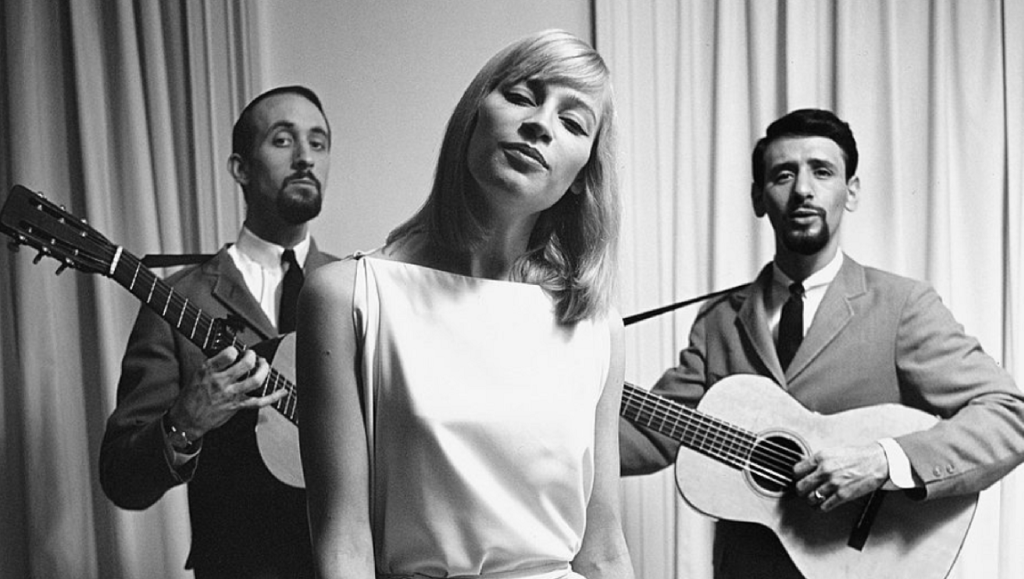It’s hard to believe that a folk group created in one of the most inorganic of ways — that is, covering songs that were already popular — would go one to wholly reshape both the industry and genre. This strange history and more accompanies the 1962 self-titled release from Peter, Paul and Mary: it was originally conceived of by a label executive looking to popularize the trendy sounds coming from Greenwich Village, and so the group was brought together to record an album primarily of existing folk songs from the era, with a far less focus on crafting original material. It’s not a surprise then that there’s a little something for everyone on the this debut album, with the dressing of a hip, counterculture movement slinging a mix of gospel and folk.
Against all odds, this odd cocktail approach proved wildly popular, shooting Peter Yarrow, Paul Stookey, and Mary Travers to the top of the charts, one of the only folk groups to achieve such heights. No small part of their success is that, in spite of the nature of the group’s conception, the tight harmonies and left-leaning lyrics play far more organically, as if their’s was not a manufactured product but a true serendipity of union. Few artists have ever been able to walk this line of commercialization and a “lightning in a bottle” articulation of an entire era of music, much less anyone who has made it feel so genuine. Indeed, the group’s success was a huge win for the folk revival, propelling their success forward across several more albums and solo careers for each of the three. The perfectly matched vocals and speedy approach to well-known classics creates a unique sonic space for the trio’s music to live inside, with many of the covers eventually being regarded as highly, if not more so, as the original versions. “If I Had My Way” takes the traditional Reverend Gary Davis lyrics commonly recorded as “Samson and Delilah” and renders an energetic triptych of voices atop a previously sparse track, inspiring future (and equally famous) renditions from groups like The Grateful Dead. “Lemon Tree,” one of few originals on the record, tells a memorable story of lost loves — de facto content for the time, executed beautifully — and “If I Had a Hammer,” originally a Pete Seeger protest classic, resurrects a spirit of class solidarity in the face of injustice. Such examples speak to a record that has minimal cohesion on its face, despite the littered pleasures of individual moments. But from a place of further remove, it’s easy to see how Peter, Paul and Mary operated as a snapshot of the American songbook, even if only paradoxically so due to the popularity it experienced during a sixties built to embrace it.
In our current music moment, one where industry plants make their way to the top of the charts and sell out arenas across the country, it’s hard to look back and imagine a group like Peter, Paul and Mary in this similar situation. With all three vocalists heralded as the best the genre had to offer and their early penchant for delivering renditions of old classics, it’s hard not to skew cynical and see their larger success, despite their lyrical content and the history of their genre of choice, as a commodification of the decade’s pervasive sentiments — in the moment, there’s no doubt peers regarded them as sellouts. But for all that, the quality of Peter, Paul and Mary’s music has stood the test of time — both on this initial record and deeper into their collaborative and respective careers. A tough pill to swallow, but there’s no denying that this time, maybe, a record label was right.
Part of Kicking the Canon – The Album Canon.


Comments are closed.